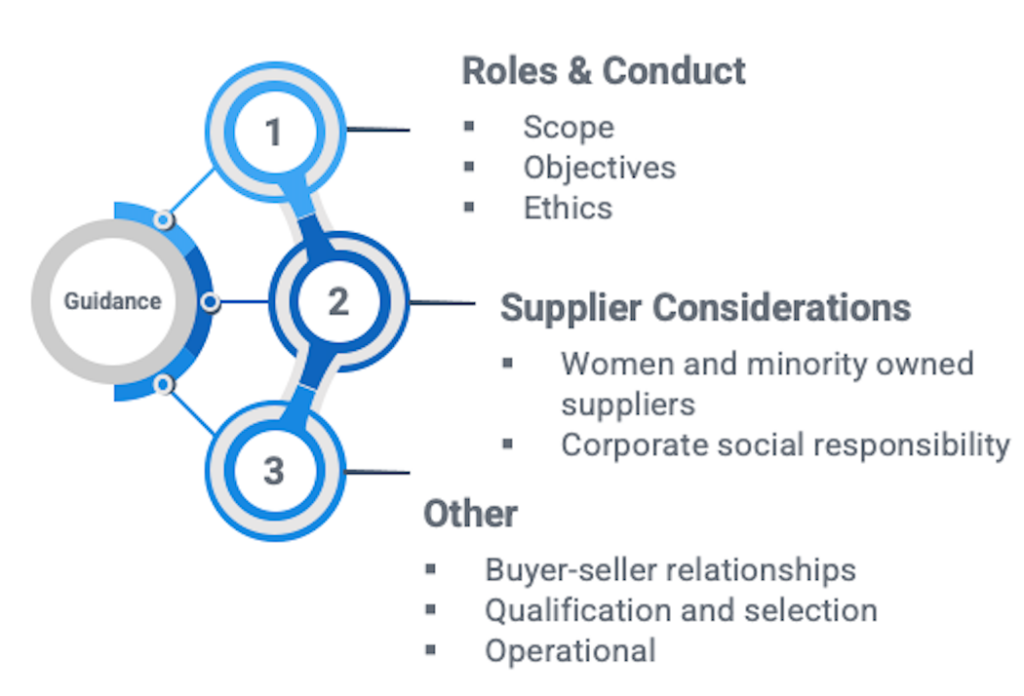Policies are statements that outline the actions adopted by businesses or organizations. They provide guidance and direction to personnel. Purchasing policies usually fall into three categories, even though there might be several different policies. A strong policy is essential for an organization’s success.
Roles and Conduct
When it comes to purchasing, it’s important to establish purchasing authority, which determines which roles within the company are authorized to purchase goods and services. The objectives of purchasing can differ depending on the overall corporate goals. Ethical standards provide a framework for what is considered honest and appropriate conduct for business professionals. It’s important to note that just because a certain behavior or business practice is not technically illegal, it doesn’t necessarily mean it’s ethical.
Supplier Considerations
Incorporating purchasing goals that consider the needs of specific suppliers can promote good corporate citizenship for an organization. It’s not only a morally commendable approach, but also a wise one. Having a corporate commitment to ethical conduct that benefits society as a whole is increasingly important to both consumers and potential employees. A positive public perception is a key factor in achieving success. Furthermore, prioritizing social responsibility can also attract highly skilled employees. Some companies may even have objectives to support women and minority-owned suppliers, which are businesses that are at least 51% owned by people of Asian, Black, Hispanic or Indigenous descent.
Miscellaneous Policies
In order for a business to succeed economically, it’s important for policies to exist that encourage mutual trust and respect between buyers and sellers. Qualification and selection policies can offer buyers guidance on how to evaluate potential and current suppliers based on their performance. Operational policies can encompass a variety of topics, including the process for awarding and ending contracts and ensuring compliance with relevant laws and regulations.

